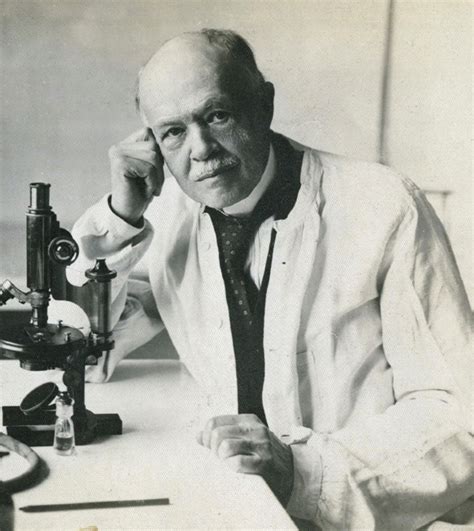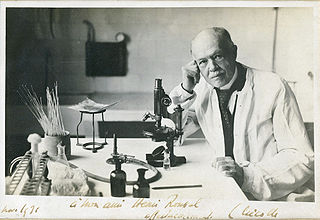A Quote by Charles Jules Henry Nicole
Just as the only reservoir for the typhus virus in nature is provided by man, so the only vector of infection is the louse. The bite of the louse is not virulent immediately after the infecting meal. It becomes so only towards the 7th day following infection.
Related Quotes
And this is the ultimate lesson that our knowledge of the mode of transmission of typhus has taught us: Man carries on his skin a parasite, the louse. Civilization rids him of it. Should man regress, should he allow himself to resemble a primitive beast, the louse begins to multiply again and treats man as he deserves, as a brute beast. This conclusion would have endeared itself to the warm heart of Alfred Nobel. My contribution to it makes me feel less unworthy of the honour which you have conferred upon me in his name.
And that almost killed you?" "It wasn't deep but it got infected. Infection means that the bad germs got into it. Infection's the most dangerous thing there is, Tom. Infection was what made the superflu germ kill all the people. And infection is what made people want to make the germ in the first place. An infection of the mind.
The city grows like a cancer; I must grow like a sun. The city eats deeper and deeper into the red; it is an insatiable white louse which must die eventually of inanition. I am going to starve the white louse which is eating me up. I am going to die as a city in order to become again a man. Therefore I close my ears, my eyes, my mouth.
We were told in one lecture that it was possible to immunize against diphtheria and tetanus by the use of chemically treated toxins, or toxoids. And the following lecture, we were told that
for immunization against a virus disease, you have to experience the infection, and that you could not induce immunity with the so-called "killed" or inactivated, chemically treated virus preparation. Well, somehow, that struck me. What struck me was that both statements couldn't be true. And I asked why this was so, and the answer that was given was in a sense, 'Because.'
There was no satisfactory answer.



































